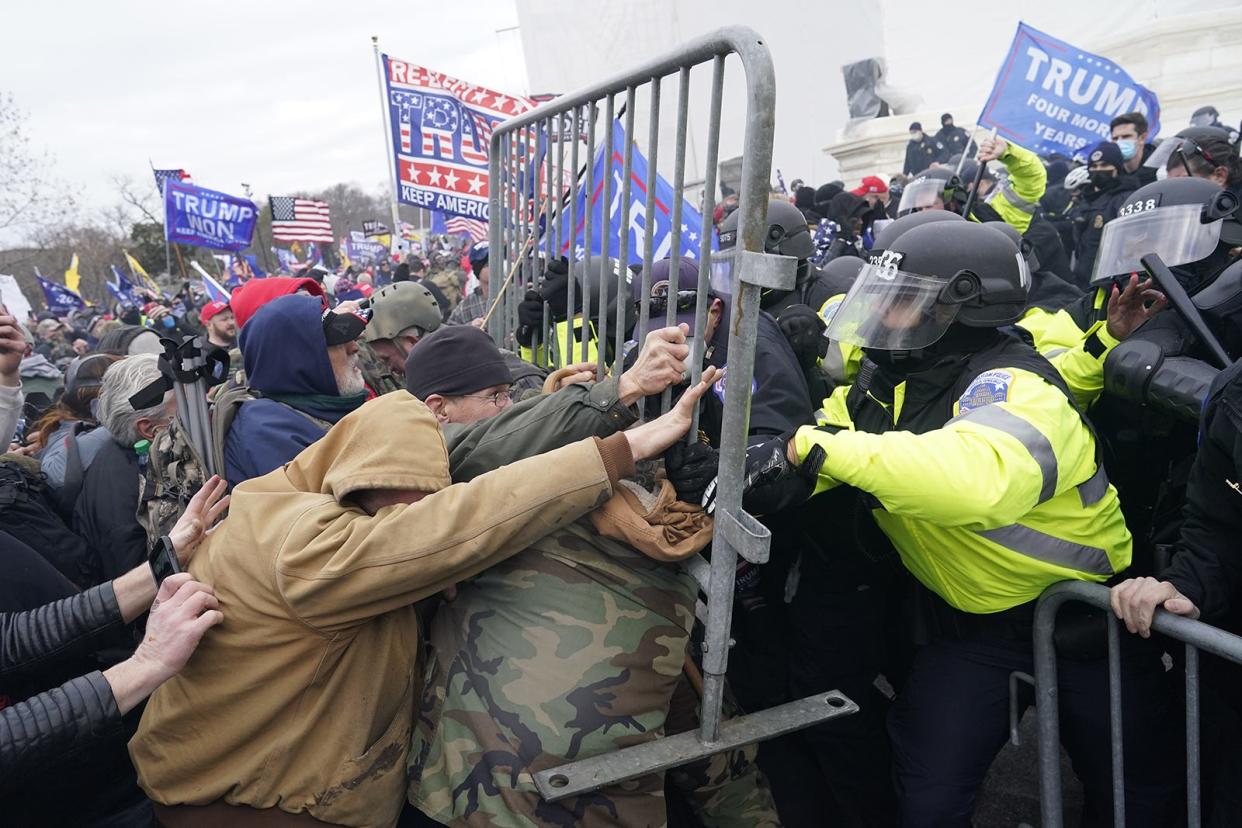Remember what it means to celebrate Independence Day, local vet reflects on July 4
While most Americans celebrate the Declaration of Independence and critical figures like Thomas Jefferson and Benjamin Franklin, I prefer to honor George Washington on Independence Day. Growing up in Erie County, I became fascinated with him while studying the French and Indian War in high school. I found it astonishing that at age 21, he visited the region to deliver a message from the British government to the French. He became even more significant to me when I received my first junior officer assignment to the USS George Washington (CVN 73) as part of its inaugural crew. Participating in the ship's commissioning on July 4, 1992, at Norfolk Naval Base remains one of the fondest memories of my naval career. Since then, each Fourth of July, I remember my first ship and its namesake as I celebrate Independence Day.

I find myself considering George Washington with even deeper contemplation this presidential election year. Washington historically impacted the establishment of our democracy, from leading the Continental Army's victory during the Revolutionary War to presiding over the Constitutional Convention. Yet, it's his presidency that is perhaps most remarkable. After serving two terms, he stepped aside, demonstrating his belief that the Office of President was not a monarchy. He established the precedent that 43 successive presidents followed — the peaceful transfer of power. It wasn't until the 2020 election that a defeated President Trump ignored Washington's example.
The events on Jan. 6, 2021, demonstrated to me that Donald Trump is the antithesis of George Washington. Trump's refusal to ensure a peaceful transfer to the next elected president validated his contempt for the Constitution and amplified concerns for most of the country. However, we should find his disdain for the Declaration of Independence's tenets more alarming. Supported by a political progeny of many Americans who historically challenged the declaration's vision and solemn promise, a second Donald Trump term, I believe, would marginalize, if not eradicate, the Founding Fathers' vision.

In his book "Rebellion," Robert Kagan discusses how the founders adopted John Locke's liberal political philosophy to draft the Declaration of Independence. More importantly, he details those who opposed its key concepts, specifically natural rights and equality. Identifying the initial dissenters as the slaveholders in the southern colonies, Kagan quotes their contempt, "They regarded the very idea of universal equal rights as a sham, an absurdity that was contradicted, they insisted, by all of human history." After the Constitution's ratification, many still disagreed with our founding document. Kagan recalls comments made by political leaders in the early 19th century, citing former Vice President John C. Calhoun's belief that equality was a "false doctrine" and social theorist George Fitzhugh, who argued that inequality was a natural and beneficial aspect of society. Even after the Civil War, Kagan noted the many efforts to sustain similar anti-democracy views into the 21st century, creating political tensions on immigration, women's suffrage, civil rights, and same-sex marriage. These issues became flashpoints between those who aspired to fulfill America's vision and those opposed to our foundational ideals. In 2016, that latter fringe, as I see it, finally had the political clout to pursue their assault on democracy with the election of Donald Trump.
Unlike other Republican presidents, Donald Trump's words and actions, in my view, are anathema to our core beliefs. While Abraham Lincoln reaffirmed the nation's commitment to the proposition that all men are created equal, Trump employs racially charged language when discussing immigrants from Mexico and African countries. Similarly, Dwight D. Eisenhower protected civil rights in defense of desegregation, and Ronald Reagan believed the Declaration of Independence's ideals were central to American identity. Yet, Donald Trump frequently echoes white supremacist rhetoric often associated with the segregationists of the 1950s and 1960s and campaigns to remove workplace equality protections for women, people of color, and the LGBTQ community.
Guided by the Heritage Foundation's Project 2025, and with the support of loyalists, a second Trump presidency, I fear, could also erode other foundational norms. His disregard for the rule of law, separation of powers, and civil liberties will continue to move the country further away from its core liberal democracy founding. Sadly, the party of Lincoln, who embraced the notion of equality and natural rights, has become the party of Donald Trump, who championswhitenationalists and authoritarians.
Ironically, Donald Trump supporters claim to value the Declaration of Independence while applauding his anti-democracy diatribe. They argue he will return us to traditional American values. I believe they need to recognize the declaration contains the most fundamental and defining of all traditional American values — ones that Donald Trump, in my view, simply does not support:
"We hold these truths to be self-evident, that all men are created equal, that they are endowed by their creator with certain unalienable rights, that among these are life, liberty and the pursuit of happiness."
Unlike his predecessors, Donald Trump, I believe, represents the most significant challenge to our democracy since the Civil War. I fear he will nullify the Declaration of Independence's significance and render Independence Day irrelevant. During another Trump presidency that will include our semiquincentennial, will July 4th simply become another day on the calendar? We must reelect Joe Biden in November to protect the principles of democracy we celebrate.
David Petri, a native of Girard Township, is a retired U.S. Navy commander and a USS George Washington plankowner. He is a business consultant in North Carolina.
This article originally appeared on Erie Times-News: Vet: Trump stands against American freedoms honored on July Fourth
